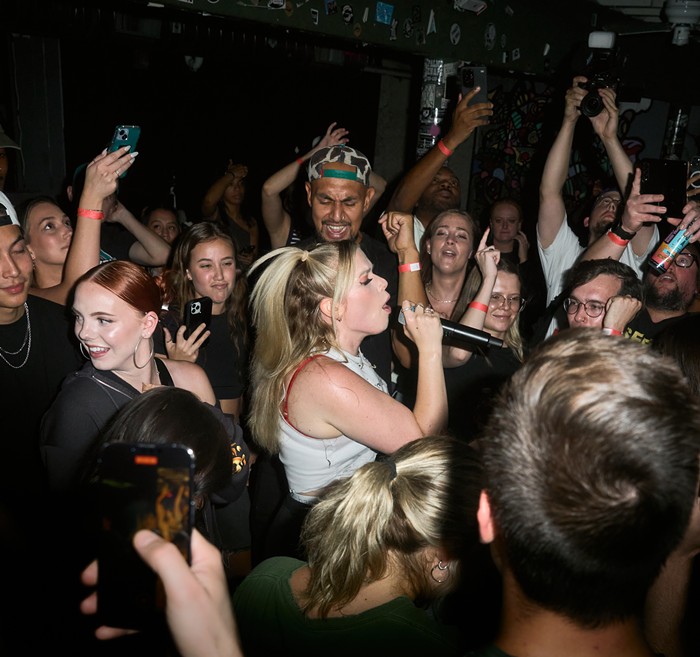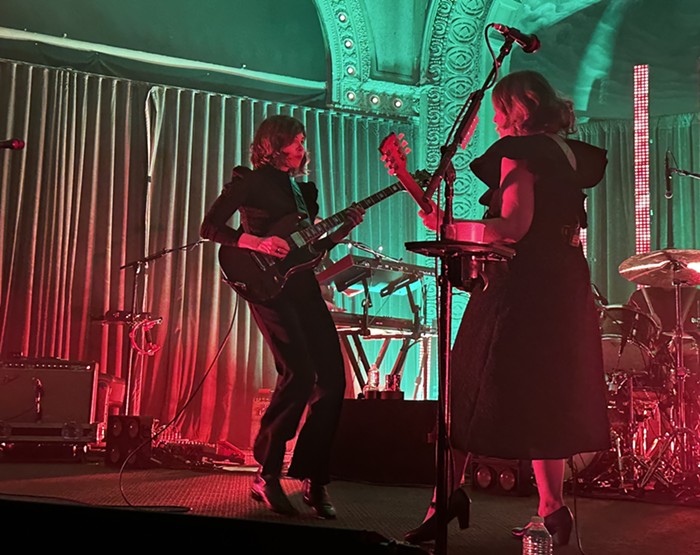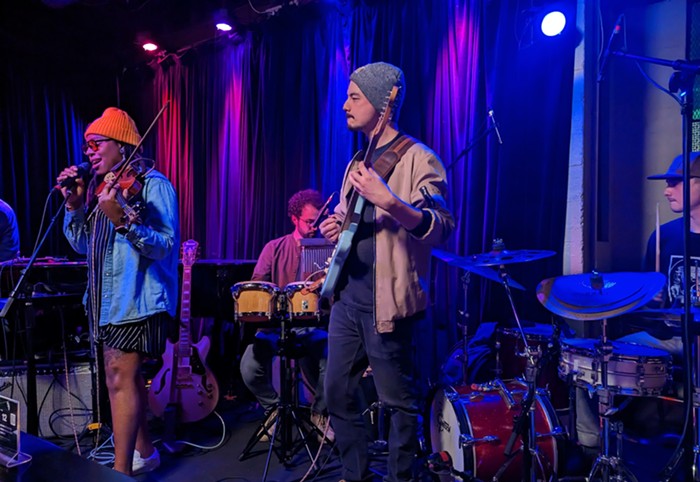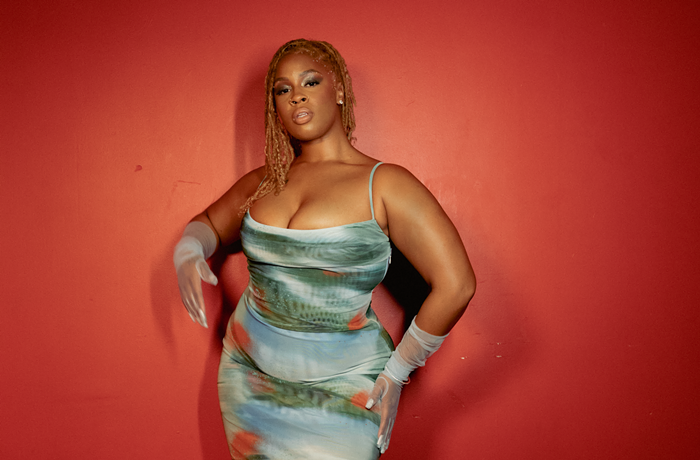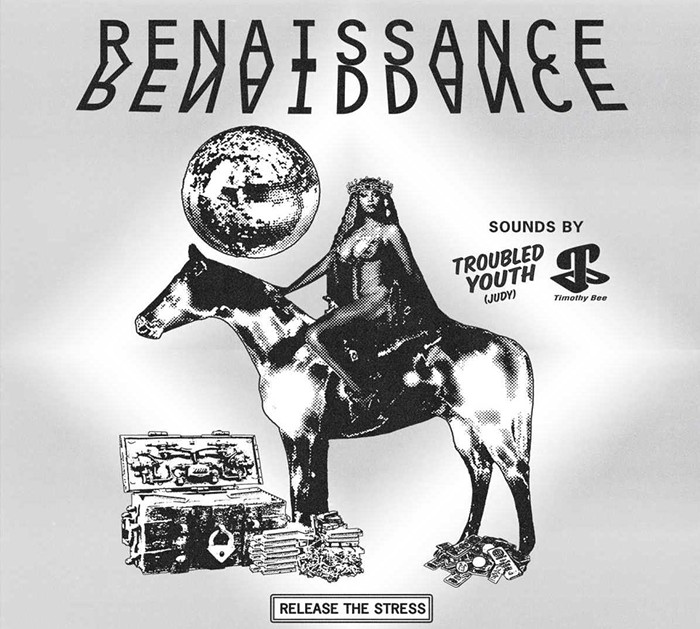ERYKAH BADU IS NAKED on the streets of Dallas, Texas. She doesn't start this way when the white-walled tires of her vintage ride pulls up to park in Dealey Plaza. She feeds the meter a handful of change, then begins the meticulous process of removing her overcoat, T-shirt, bra, and underwear as she walks toward the camera—not singing—completely oblivious to the notion that this shaky hand footage is supposed be a music video for her sweeping new single "Window Seat." The footage is the polar opposite of a typical music video striptease. As Badu clinically removes her clothes (until her exposed skin is little more than a mass of blurred, censoring pixels), a single shot rings out from a nearby grassy knoll. Her naked body hits the pavement and a slow stream of (blue) blood trickles from her head, spelling out the word "groupthink," on the very same pavement where JFK was assassinated 47 years ago.
It's an ambitious undertaking to artistically recreate the most famous death in American history—completely void of mournful patriotism or conspiracy theories, but with copious nudity and off-colored blood—yet it's a task Erykah Badu masterfully completes. With north of 1.2 million views online, this is the sort of clip that would never have seen the light of day had MTV stayed true to their name and away from Jersey Shore. But their loss is our gain, and "Window Seat" has become an undeniable hit, one in a continuous trail of unlikely songs that have crowned Badu as the supreme soul voice of our generation. As we watch her blood take its cursive shape on the ground, it's startlingly clear that Badu is equal parts singer and artist.
No matter your opinion of her faux assassination, we are truly living in the golden age of Badu. It's hardly a neo soul thing—the vague genre of which Badu has long since been deemed the leading voice has been easily transcended with her two most recent recordings, 2008's New Amerykah Part One (4th World War) and its superior follow-up, New Amerykah Part Two (Return of the Ankh)—nor does it have to do with Badu's odd placement among the fairy tattooed crowd at the running punchline that is the rebooted Lilith Fair.
Instead we now have the grand pleasure of witnessing Badu at her creative zenith, as she wreaks havoc on the pop stratosphere with recordings that still harness her wondrous soulful croon while melting minds with a flamboyant dystopian vision that is entirely her own. In this contained universe of hers, she dismantles the Bush doctrine in Part One—after all, it is called (4th World War) for a reason—and rebuilds hope with its weak-kneed, lovestruck follow-up. All the while Badu stays true to her tradition of open-book emotional purging, plenty of which is available on both recordings, from the confessional "Me" (from Part One), and Part Two's smoldering closing number "Out My Mind, Just in Time," where Badu cops to being "a recovering undercover over-lover." Throughout both versions of Amerykah her song structure remains wide open, a deliberately directionless vehicle for Badu to control with her pristine voice, as she does with boastful pride in the woozy "The Healer," or Part Two's graceful opener, "20 Feet Tall."
If you require a similarly soulful career arc to compare Badu to, think early '70s Stevie Wonder, when he reeled off a slew of recordings—Music of My Mind, Talking Book, Innervisions, Fulfillingness' First Finale, Songs in the Key of Life—that mirrored the world around him while simultaneously changing the pop landscape. Badu is on a similar track, with a long way to go, but considering how remarkable these Amerykah recordings are, it's not without reason to think she'll arrive at a similar destination. Even if that means she has to play an amphitheater named after a mattress company, sandwiched between sets from Sugarland and Sheryl Crow.

